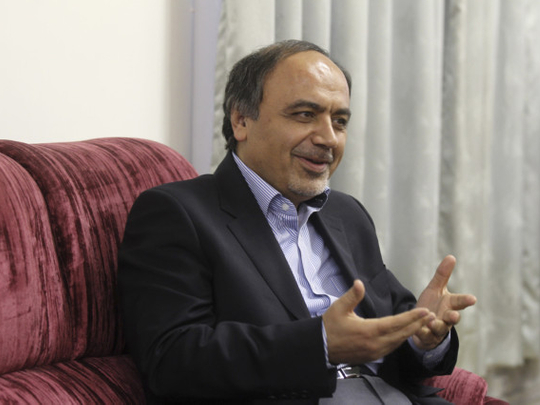
Washington: President Barack Obama has signed legislation aimed at blocking Iran’s chosen ambassador to the United Nations because of his ties to the 1979 takeover of the US Embassy in Tehran. But the president says he’s only treating the legislation as guidance.
The unusual legislation bars anyone from entering the US as a UN representative if they’ve engaged in espionage or terrorist activity and still pose a threat to US security. It’s aimed at blocking Hamid Abutalebi, a member of the Muslim student group that held 52 Americans hostage for 444 days during the embassy takeover.
Abutalebi has insisted his involvement in the group was limited to translation and negotiation. Iran has accused the US of setting a dangerous precedent by violating the right of sovereign states to designate representatives to the United Nations.
The sensitive dispute comes amid efforts between Washington and Tehran to thaw relations over Iran’s nuclear programme.
The administration has said Abutalebi was an unacceptable choice and refused to grant him a visa. Yet the White House had been noncommittal about whether Obama would sign the legislation that Congress passed earlier this month.
The White House announcement Friday that Obama privately signed the legislation was accompanied by what’s known as a signing statement. Presidents occasionally issue signing statements to assert that they believe part of the legislation is unconstitutional and therefore they intend to ignore it or implement it in a way they see fit.
“Acts of espionage and terrorism against the United States and our allies are unquestionably problems of the utmost gravity, and I share the Congress’ concern that individuals who have engaged in such activity may use the cover of diplomacy to gain access to our nation,” Obama said in the statement. But he said he will treat the legislation as advisory out of concern it could interfere with his discretion to receive ambassadors.
Iran can choose to nominate a different ambassador or have Aboutalebi occupy the post from overseas.
As host country for the United Nations, the US must provide rights to persons invited to the New York headquarters. However, exceptions can be made when a visa applicant is found to have engaged in spying against the US or poses a threat to American national security.
Despite the decades-long tension between the US and Iran, the Islamic republic maintains a robust diplomatic mission at UN headquarters in New York. The US frequently allows visas for representatives from countries it disfavours, including Syria and North Korea, but restricts their diplomats’ movements and activities to a 25-mile radius of New York City.
Iranian UN Mission spokesman Hamid Babaei said Iran had sent a delegation to meet with the United Nations’ office of Legal Affairs on Tuesday, after filing a letter of complaint to the United Nations and the UN General Assembly’s Committee on Relations with the Host Country.
The 19-nation Host Country committee can hold a hearing on the issue but cannot change the US decision. The United States is a member of the committee, which is expected to meet next on April 22.
Iran’s letter, sent Monday night, said the United States was breaching its obligations under the US-UN Host Country Agreement, which is a treaty and US law that generally requires the host country to allow access to diplomats and UN guest speakers.
“This decision of the US government has indeed negative implications for multilateral diplomacy,” the letter said.
UN spokesman Stephane Dujarric said the UN General Assembly’s committee on relations with the United States will meet on Tuesday and that the UN legal counsel will be present. He had no further comment.
Denying visas to UN ambassadorial nominees or to foreign heads of state who want to attend United Nations events in the US is extremely rare, though there appears to be precedent. According to a paper published by Yale Law School, the United States rejected several Iranians appointed to the UN in the 1980s who had played roles in the embassy hostage crisis or other acts against American citizens.
Sen. Chuck Schumer, a chief supporter of the legislation, said Obama did the right thing.
“This bill sends a loud and clear message to Iran, and to all others, that the United States will not allow people who harm Americans to come here and operate with diplomatic immunity,” Schumer said.











